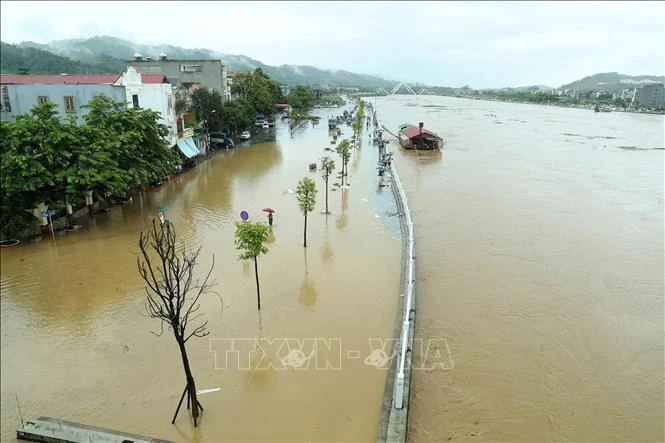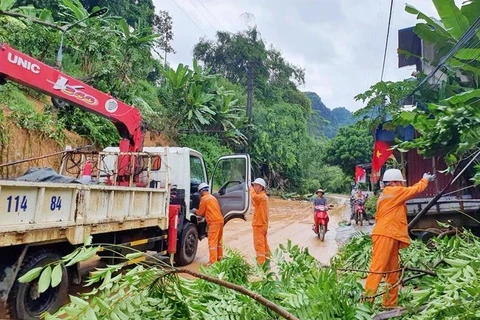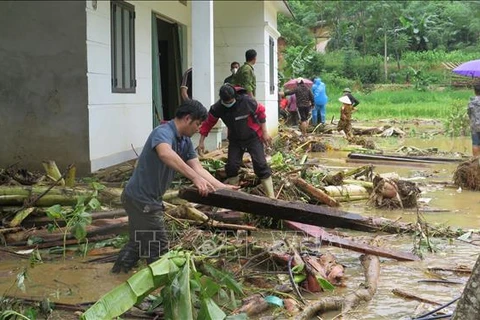
Beijing (VNA) – Vietnam and China have cooperated in natural disaster prevention, control, and mitigation as Typhoon Yagi scythed through a number of their cities and provinces, Chinese Foreign Ministry spokeswoman Mao Ning said on September 13.
Speaking at a regular press conference of the ministry, Mao elaborated that the hydrometeorological station of Vietnam’s Lao Cai province has provided rainfall data for Hekou Yao autonomous county of China’s Yunnan province.
Meanwhile, the China Meteorological Administration urgently collected and provided hydrometeorological information in the China - Vietnam border area to the Vietnamese side to strongly support flood prevention and relief efforts by both countries, she continued.
The spokesperson described the cooperation as a vivid demonstration of Vietnam and China being friendly neighbours that support each other, saying it also holds importance to building a China - Vietnam community with a shared future that carries strategic significance./.






















